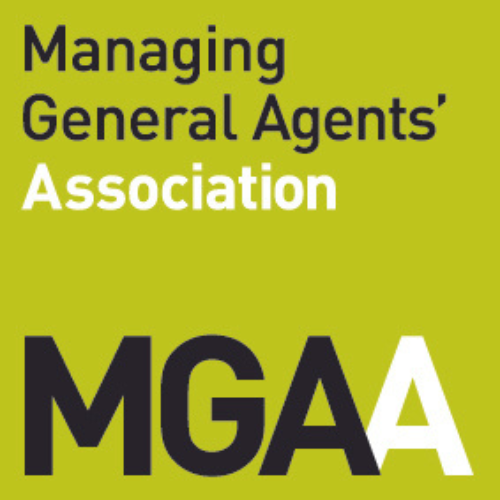Running a claims team is never easy – you are responsible for the section of your company which has the biggest impact on its external reputation for a start, not to mention that internally you control the purse strings for the largest outgoings, and will therefore be kept under the microscope by the CEO – but throw in a world-changing event like Covid-19 and you might be starting to regret taking that promotion.
If you are struggling under the increased responsibilities, both external and self-imposed, then you’re not alone: studies are already indicating that senior management members are reporting substantially increased levels of stress, dealing with a situation which is unprecedented, working increased hours and responding to substantially more problems as they look for the right response to the current crisis. What constitutes the ‘right’ response has seen a major shift in the balance of considerations between contractual obligations under the policy, regulatory considerations in the way claims are handled, policyholder emotions – heightened by the threat to them and their businesses – alongside governmental and public scrutiny of the nature, tone and speed of response to policyholders.
So it’s worth noting up front that there is no right response: no one has been here before, and the right way to deal with the additional responsibilities will not become clear for some time yet. It’s likely that the right response will be bespoke to your company, as issues are likely to affect each firm differently depending on the unique characteristics of each company, and the nature of brand reputations individual firms have strived to build.
But there are a few aspects of your role which will be broadly similar across the market, and here are a few of our thoughts on possible ways to approach them:
- Team wellbeing: you have undoubtedly considered your team’s wellbeing as you implemented action plans to ensure continuity of response, but how closely have you paid attention to your team’s needs since getting the ‘Work From Home’ (WFH) element up and running? Every leader understands the importance of holding regular 1 to 1 meetings with their direct reports, and this is even more vital when you can’t sit face to face. You are not the only person in the team dealing with increased stress, and it is essential to use part of your 1 to 1s to ensure that your people are dealing with these difficult times as well as possible. Empathy, always a key tool for every good leader, has never been more important than now.
- BAU and special projects: every claims leader is running, or planning, projects throughout the year, either the business as usual projects necessary to the smooth running of the team or new projects planned to improve the operation of the team. In a crisis it is easy to take your eye off these projects and devote yourself to the increased demands being made as a result of it. But ignoring these projects will only kick the can down the road, and risks making the problems you hope to resolve worse by the time you can focus on them. In a time when senior management understands the need to increase resource to deal with extraordinary issues it is worth looking at external resources to help, either by providing temporary leadership for internal (or external) project team members, or by bringing experience to bear through additional planning, logistics and thought leadership to the issues created by the crisis.
- Team right sizing: all claims management understands the financial pressures involved in correctly resourcing a team, balancing the financial expectations of senior management against the volume of policies written and, ultimately, claims presented. Most of the market has been coping with reduced staffing budgets for many years. But in a time when teams will be under extreme stresses with respect to volumes and coverage issues, and with increased pressure to find the correct response to claims which will likely define your company’s reputation for the foreseeable future, it has never been more important to have a team which can handle these claims quickly and correctly. If your team, like most, is potentially understaffed it is worth considering bringing in external expert claims leaders and handlers to avoid the potential PR disaster of getting your claims response wrong.
- Training: every HR unit is looking for ways to utilise their training budget for the various sections of the company, and while team leaders are generally in favour of using this resource it is often balanced against the time cost of running these courses, with the additional need of ensuring everyone can attend in person and on the date. Working from home actually takes away a number of these problems, as your team will all be online at the same time, and most reputable training companies are able to provide on-screen courses. There has never been a better time to utilise your training budget as easily as now.
- Claims Controls / remote management: many companies had no formal WFH protocols in place before the pandemic, and as such are struggling with remote management and ensuring that effective claims controls and audits are in place, and that consistent service levels are being maintained. Insurers could learn from their service providers, such as adjusters and accountants, who have been running remote offices for many years. While an inexperienced team leader will be tempted to concentrate solely on SLAs and KPIs, it has never been more important to give your team specific responsibilities and ensure that they feel valued and trusted to respond. A team leader who provides support and trust to their team in this difficult time will be rewarded with people who not only hit their targets now, but will be markedly improved when normal service resumes, providing a meaningful differentiator to your competitors when service will become a key sales point for brokers and clients. It has also never been more important to ensure that your control environment is working whether that is a four eyes or peer review process. The regulators expect it and fraud at this point in time is likely to be rife. Managers may need to consider whether they can continue to operate their control environment or need independent help by Internal Audit, Compliance or a third party.
- Managing complaints / do no harm to customers: in a time of increased volumes of claims relating directly and indirectly to the coronavirus, and with vastly differing wordings across the market leading to confusion on cover, it has never been more important to ensure that the complaints process is at the centre of your claims response. Brokers, clients and regulators will all be focused on how you deal with coverage and any ensuing complaints, and it is certain that pressure will be brought to bear on every claims team in the market, both externally and from your senior management. Given this, it is vital that you have experienced personnel dealing with the front line of the complaints process: if this is not the case then you will need to reallocate resources, either from senior claims handlers within the team or by bringing in experienced personnel from outside sources. Fellow ICSR Consultant, Adrian Crick, has looked at the wider issues around managing complaints in these difficult times and I recommend you take a look at his article – Business Interruption During the Covid-19 Pandemic: Potential SME Complaints
These are just a few thoughts on the steps all claims leadership will need to consider over the coming weeks and months as the market responds to the fall out from the pandemic. It’s clear that the market as a whole will need a lot of assistance to ensure that that they are able to deal with the increased demands being made on them.
If you are in the position of looking at your options going forward, or would just like to have a discussion about the various ways you can deal with them, please feel free to get in touch for a chat. ICSR has a number of claims resources available to assist clients in a variety of different ways, all available for swift deployment. Please contact ICSR Director, Kenneth Underhill to discuss the options.
David Cameron
Consultant and Claims Management Specialist
Implement Compliance Solutions and Resources Ltd

About the author: David Cameron is a highly experienced claims market professional, having worked in markets around the world in a variety of different roles, including as Head of Claims for a well-known Lloyd’s syndicate and Head of Department for a multinational loss adjusting firm. tor.








